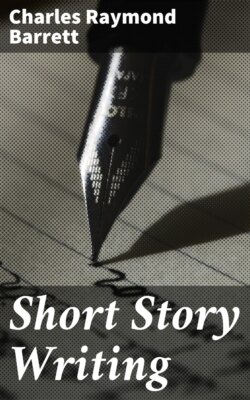Читать книгу Short Story Writing - Charles Raymond Barrett - Страница 3
На сайте Литреса книга снята с продажи.
PREFACE
ОглавлениеTable of Contents
This book is an attempt to put into definite form the principles observed by the masters of the short story in the practice of their art. It is the result of a careful study of their work, of some indifferent attempts to imitate them, and of the critical examination of several thousands of short stories written by amateurs. It is designed to be of practical assistance to the novice in short story writing, from the moment the tale is dimly conceived until it is completed and ready for the editor's judgment.
The rules and principles here presented embody not what I conceive to be right, but what the great masters of the short story have thought to be right, and what they have proved to be at least successful. I speak only as a delver into the secrets of other men; and if I seem arrogant, it is due to the influence of the company I keep. My deductions are made not only from the artifices and triumphs of the successful, but from the struggles and failures of the unfortunate as well; and I have endeavored to make clear both the philosophy and the application of all the principles so deduced. Though in theory these rules are obligatory on all who essay the short story, they are frequently and knowingly evaded or violated by the masters of the art, whose genius is great enough to excuse their disregard of the conventions, or whose skill is sufficient to smooth over their technical lapses; but for the novice the only safe course is a careful observance of all conventions.
To the aspiring writer this book may seem to be merely a catalogue of "Don'ts", the gist of which is, "Don't write"; but that is to misread me. Short story writing is not easy, and I cannot make it so, even if I would; but it is far from my purpose to discourage any person who feels the Heaven-sent call to write, and who has the will and ability to respond to it. But that call is but a summons to labor—and to labor the severest and most persistent. To one who comes to it but half-heartedly, illy prepared, shirking its requirements, I can predict certain failure; but to the earnest, serious, conscientious worker, I would say a word of hope. The promotion from the rank of amateur to the dignity of authorship may be long in coming, but it will come at last. Fame, like all else that this world has to give, depends largely upon downright hard work; and he who has the courage to strive in the face of disappointments will achieve success in the end.
Throughout this book I have endeavored to give my statements definiteness by the employment of numerous examples, both good and bad. I have made no attempt to present an exhaustive analysis of the technique of individuals or of schools, but have chosen my illustrations with a single view to their aptness; I have, however, for the convenience of reference, taken these paradigms chiefly from the published collections of stories by the older and better known writers. My "awful examples" are verbatim excerpts from manuscripts which have passed through my hands; their authorship is concealed for obvious reasons.
To the best of my knowledge there is no book extant which treats solely of the technique of the short story. The nearest approach to it is "How to Write Fiction," an anonymous work published by Bellaires & Co., London; but to my mind that is too slight, too theoretical, and too enamored of the artificial French school to be of practical value to the amateur. Far better, as working guides, are the frequent fragmentary articles on the short story, many of them by successful short story writers, published in current periodicals, to which I am considerably indebted. But my greatest obligation is to a course in "The Art of the Short Story"—the first university course ever offered in that subject—conducted at the University of Chicago in 1896 by Dr. E. H. Lewis.
C. R. B.
Chicago, August 1, 1900.
